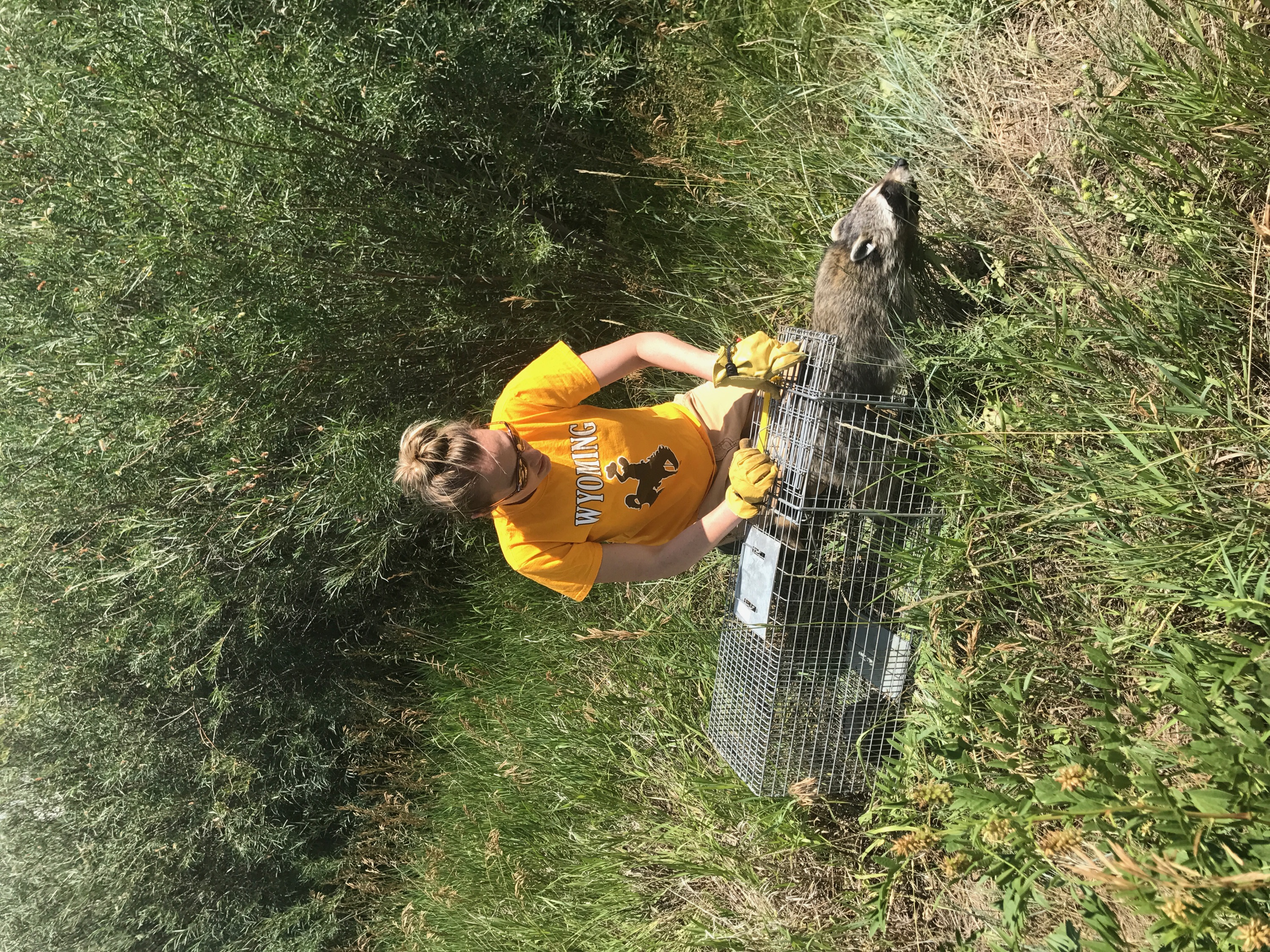
To the occasional annoyance of their human counterparts, raccoons have found a way to survive—and thrive—in urban environments. Cameras have captured these “trash pandas” boldly snatching food from startled bystanders or discretely poring through overturned garbage cans.
Rather than begrudgingly accept the disruption caused by these masked bandits, Lauren Stanton spent four years studying raccoons as a PhD student at the University of Wyoming. Her preliminary findings, which were published recently in the Journal of Experimental Biology, show that the most docile raccoons—rather than the bolder, more aggressive ones—demonstrated a greater ability to learn how to obtain food in urban environments.
“The more that we know about their behavior and their cognition, I think it can really aid us in figuring out how to coexist with them,” Stanton—who is now a postdoctoral researcher in the Department of Environmental Science, Policy, and Management working with assistant professor Chris Schell—told the New York Times. Her findings may provide insight into how to better mitigate conflicts when animals are forced to share more of their habitat with us.
Stanton and her colleagues used live traps baited with cat food to humanely capture raccoons living in Laramie, Wyoming, and transfer them to a lab. Researchers assessed each captured raccoon’s health, determined how feisty or docile it was, and inserted a radio frequency ID tag to track and monitor it.
After releasing the raccoons back to their home territory, the researchers deployed a two-and-a-half-foot-tall “raccoon cubicle” that featured two buttons, only one of which resulted in a food reward. Once the animal learned to trust the cubicle and demonstrated a consistent ability to press the reward button, the task was reversed so the other button also delivered food.
According to Stanton, docile raccoons were more likely to learn how to operate the device in natural conditions, a finding that suggests a relationship between emotional reactivity and cognitive ability in raccoons.
Additional co-authors of the study include Sarah Benson-Amram, a faculty member at the University of British Columbia-Vancouver; Eli Bridge, of the University of Oklahoma; and Joost Huizinga, a former PhD student at the University of Wyoming.
Read more about the study in the Journal of Experimental Biology or in the New York Times.
